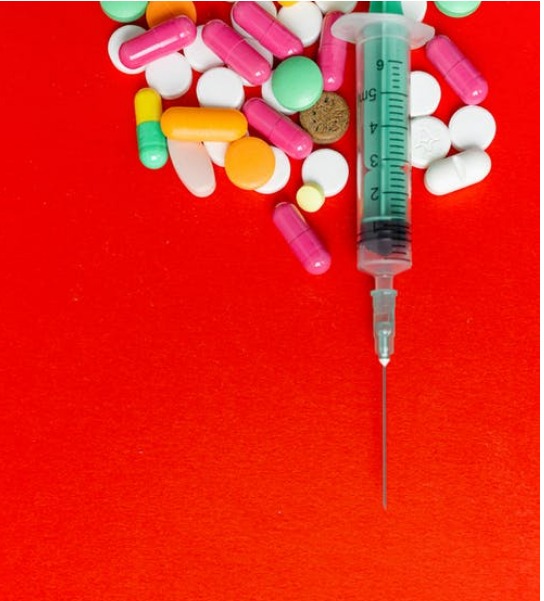A drug allergy occurs when your immune system has an aberrant reaction to a medicine. Any medicine, whether over-the-counter, prescription, or herbal, has the potential to cause a drug allergy. Certain drugs, on the other hand, are more prone to cause a drug allergy.
Hives, rash, and fever are the most typical indications and symptoms of a medication allergy. A medication allergy can result in significant side effects, including a potentially fatal illness that affects numerous bodily systems (anaphylaxis).
A drug allergy is distinct from a drug side effect, which is a recognised potential adverse effect specified on a medicine label. A drug allergy is distinct from drug toxicity, which is caused by a medicine overdose. Flinders is a chemist store where you will get the best quality medicines that are less reactive and less drug allergy symptoms.
What are the reasons behind all the drug allergies?
Your immune system aids in illness prevention. It’s made to combat foreign invaders like viruses, germs, parasites, and other potentially harmful items. Your immune system misidentifies a medicine that enters your body as one of these invaders, resulting in a drug allergy. Your immune system produces antibodies in reaction to what it perceives as a danger. These are proteins that have been engineered to assault the intruder. They assault the medication in this scenario.
Increased inflammation results from this immunological reaction, which might manifest as a rash, fever, or difficulty breathing. The immunological response may occur the first time you take the medicine or may not occur until you’ve taken it several times without incident.
Are drug allergies always dangerous?
A medication allergy’s symptoms might be so subtle that you don’t even recognise them. It’s possible that you’ll only get a little rash. Thus, we can say that every medicine allergy symptom is not dangerous.
A severe medication allergy, on the other hand, can be fatal. It has the potential to induce anaphylaxis. Anaphylaxis is a quick, life-threatening reaction to a medication or other allergen that affects the entire body. An anaphylactic response might happen minutes after taking the medication. It might happen within 12 hours of taking the medicine in certain circumstances. Among the signs and symptoms are:
- irregular heartbeat
- trouble breathing
- swelling
- unconsciousness
If anaphylaxis is not treated promptly, it can be deadly. If you experience any of the symptoms listed above after taking a medicine, contact 911 or go to the nearest emergency facility.
A medication allergy only affects a small percentage of the population. It always affects the immune system and has bad consequences.
What’s the difference between a medication allergy and side effects?
A side effect, on the other hand, might happen to anyone who takes medicine. It also doesn’t usually involve the immune system. A side effect is any consequence of medicine, whether detrimental or beneficial, that is unrelated to the drug’s primary function.
For example, aspirin, which is used to alleviate pain, frequently produces stomach trouble as a side effect. It does, however, have the benefit of lowering your risk of heart attack and stroke. Acetaminophen (Tylenol), another pain reliever, can potentially harm the liver. Additionally, nitroglycerin, which is used to enlarge blood vessels and promote blood flow, may have a side effect of improving mental performance.
What is the treatment for a medication allergy?
The severity of a medication allergy determines how you handle it. If you have a strong allergic reaction to a medicine, you should probably avoid it completely. Your doctor will most likely try to switch you to a different medicine that you aren’t allergic to.
Your doctor may still prescribe a medicine if you have a moderate adverse response to it. They may, however, prescribe another drug to help you regulate your response. Certain drugs can help to lessen symptoms by blocking the immunological response. These are some of them:
Antihistamines
When your body believes a material, such as an allergy, is hazardous, it produces histamine. Histamine release can cause allergy symptoms such as swelling, itching, and discomfort. The antihistamine works by inhibiting the generation of histamine, which can help alleviate allergy symptoms. Antihistamines are available in the form of tablets, ocular drops, and lotions.
Corticosteroids
A medication allergy can induce airway oedema and other significant side effects. Corticosteroids can aid in the reduction of inflammation that causes these issues. Corticosteroids are available in a variety of forms, including tablets, nasal sprays, eye drops, and lotions. They’re also available in powder or liquid form for use in an inhaler, as well as liquid form for injection or nebulizer usage.
Bronchodilators
Your doctor may prescribe a bronchodilator if your medication allergy causes wheezing or coughing. This medication will aid in the opening of your airways and the facilitation of breathing. Bronchodilators are liquid or powdered medications that may be used in an inhaler or nebulizer.
Takeaway:
With so many allergies related to drugs, it becomes important that we buy our medicines carefully. Flinders is one of the best compounding chemists in Australia that have all the medicines checked before they are sold and that is why they are a genuine choice to reckon with.




